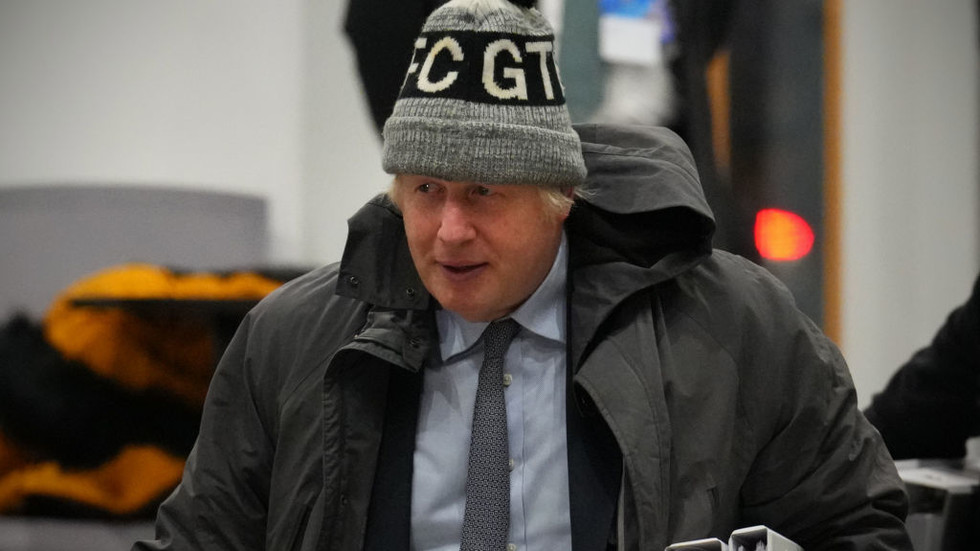CNN —
Taiwan President Tsai Ing-wen and US House Speaker Kevin McCarthy are set for a highly anticipated meeting in California on Wednesday, in a show of democratic solidarity in defiance of threats from China.
Tsai will gather with McCarthy and a bipartisan group of US lawmakers at the Ronald Reagan Presidential Library in California’s Simi Valley, McCarthy’s office said in a press release earlier this week.
The landmark meeting is the second time Tsai will meet with an American lawmaker of that rank in the space of a year, following a visit from then-House Speaker Nancy Pelosi to Taiwan last August.
Beijing launched extensive military drills around the democratic island and suspended several lines of communication with Washington in response to that visit – raising concerns about aggressive and destabilizing steps it may take in response to Tsai’s sit-down with McCarthy, even though this meeting is taking place on American soil.
Tsai’s delegation is making a planned stopover in California following official visits to Taiwan’s diplomatic allies Guatemala and Belize – part of a 10-day tour to shore up Taipei’s overseas relationships amid increasing pressure from Beijing.
Taiwan’s official Central News Agency also reported earlier this week that Tsai would meet with McCarthy while in California, citing the island’s presidential office.
China’s Consulate General in Los Angeles condemned the anticipated meeting with McCarthy as “not conducive to regional peace, security and stability,” warning it would “undermine the political foundation” of China-US relations.
“We will closely follow the development of the situation and resolutely safeguard national sovereignty and territorial integrity,” the consulate said in a Monday statement – one of multiple condemnations from Chinese officials in recent weeks as reports of the meeting emerged.
China’s Communist Party claims the self-governing democracy as its own despite never having controlled it, and has vowed to take the island, by force if necessary.
Tsai struck a defiant tone when setting out on her international tour late last month, telling reporters that “external pressure” wouldn’t stop Taiwan from connecting with the world and like-minded democracies.
On Tuesday the island’s foreign ministry called repeated Chinese criticisms of her travel “increasingly absurd and unreasonable.”
“Taiwan will not back down, and friends in the US who support Taiwan and Taiwan-US relations will not back down either. Democratic partners will only become more united and have more frequent exchanges,” the statement said.
Wednesday’s meeting is also expected to include Rep. Pete Aguilar of California, who is a member of Democratic leadership, and the leaders of a new select committee on China, among others, according to a copy of the invite list obtained by CNN.
Tsai’s stopovers in the US, which included transit in New York last week, also come amid heightened tensions between the US and China.
The two powers have struggled to stabilize their relationship amid friction over issues from tech security to a suspected Chinese surveillance balloon downed over the US.
Last week Beijing’s top envoy in the US threatened that Tsai’s presence in American cities could lead to “serious” confrontation in the relationship.
The White House is declining to say whether it supports the planned meeting between McCarthy and Taiwan’s president.
The US maintains an unofficial relationship with Taiwan and Tsai’s transit in the country is therefore not an official visit in order to keep Washington aligned with its longstanding “One China” policy.
Under the policy, the US acknowledges China’s position that Taiwan is part of China, but has never officially recognized Beijing’s claim to the island of 23 million. It is also bound by law to provide the democratic island with the means to defend itself.
Congress has remained a key pillar of that unofficial relationship – with delegations of lawmakers visiting the island and driving legislation enhancing support or coordination in recent years in the face of increasing military, economic and diplomatic pressure on the island from Beijing.
.png)
 1 year ago
5
1 year ago
5









 English (US) ·
English (US) ·